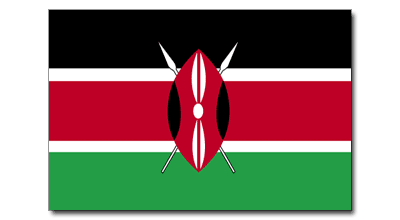Kenya has launched its second national action plan providing a roadmap for further implementation of the United Nations(UN) resolution on the inclusion of women in peace and security processes passed two decades ago.
The 2nd Kenya National Action Plan (2020-2024) developed and launched by the ministries of Public Service and Gender and Interior and Coordination of National Government in a virtual conference last week, would advance 2016-2018 action plan’s successes in implementing the 2000 adopted UN Security Council Resolution 1325.
Gender Cabinet Secretary Prof Margaret Kobia, who launched the plan in the absence of her counterpart Dr Fred Matiang’ i, said the fresh plan would accelerate efforts made to increase women’s participation in peace and security processes in the country.

“The plan built on the successes of the first generation of 2016-18 and seeks to strengthen, accelerate and provide accountability (in the integration of women) in implementation of peace and security agenda in Kenya,” she said.
She added that her ministry will continue to evaluate progress made in implementing the UN resolution, further drawing lessons for better improvement of women’s participation in the agenda.
Prof Kobia made an anecdotal reference to the significance of women’s inclusion in peace and security process.
PEACE PROCESS
“It is not men versus women. It is more of a complementarity. The world is made of two portions… everything is in pairs. That is why we have two eyes and legs. The same with us having men and women (in peace and security processes).”
Cabinet Secretary for Defense Dr Monica Juma was categorical that women’s participation in security and peacebuilding in the fast-changing scene of global threats cannot be underestimated.
She noted the growing portfolio of what she termed as soft lethal threats, which she disputed would be tackled “with defence capabilities as we know them.”
She identified the soft lethal threats as “radicalisation that happen with children in our homes, schools and safe spaces, cybersecurity, human trafficking and violence in the context of fragility, for instance, Covid-19.”
Women, she said, are pivotal in ending these threats if well equipped.
The training of women to counter the emerging threats, however, has to be done cautiously to avoid advancing patriarchal orders in the defence system, she warned.
“We need to change the nature of capability required to secure our society. There is need to cautiously increase the pool of women in peace and defence security sector,” she noted.
“Those are the models we need to renegotiate because the nature of war and threats have changed significantly.”
UN Resident Coordinator in Kenya, Siddharth Chatterjee, raised concern that women continue to be systematically excluded from peace and security processes despite evidence from studies showing that their inclusion in negotiation boosts adherence to a peace agreement.
“There is compelling evidence to suggest that women participation in peace negotiation increases the possibility of peace agreement lasting up to 35 per cent more.”
Additionally, Ambassador of Finland to Kenya, Erik Lundberg, told the conference that studies have provided worrying evidence of women exclusion of women in global peace mediation.
“Studies show that in all peace processes between 1990 and 2017, women constituted only two per cent of mediators,” he said.
WOMEN INCLUSION
They are also composed of five per cent of witnesses and signatories as well as only eight per cent of negotiators, he added.
Foreign Affairs Cabinet Secretary Raychelle Omamo expressed fear over the possibility of African governments failing to meet its targets of “silencing the gun” due to Covid-19 disruptions.
“Covid-19 creates a situation of instability within Africa… and destabilises our communities. There is indeed a real risk at least from the Africa perspective that we will not be able to attain the goals of silencing the guns,” she said
She urged women leaders in the African Union members States to fast-track actualisation of the 1325 UN resolution at the regional level.
“For example, our continent is observing a new African women decade for financial and economic inclusion and it has launched the African women leadership fund. So, how are we going to work around these initiatives not only to deal with Covid-19 but also to deal with broader issues of women in peace and security,” she said.

